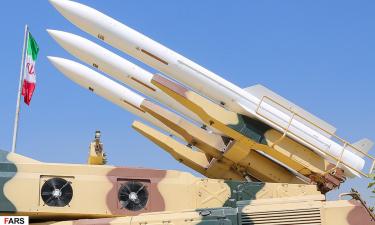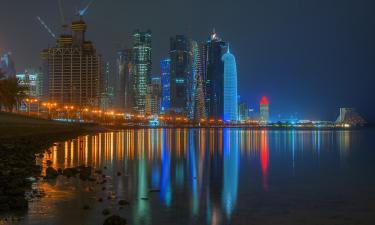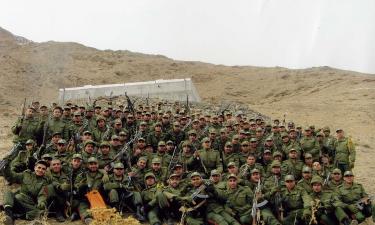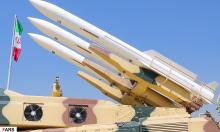The Man Who Finds Money Even Where There Is None Part Two
Nicholas Greene: We hope to get the biggest piece of the pie
In September, Russia’s Rosbank announced the creation of a Structured Finance Group which would focus on attracting foreign investment to Russian enterprises and on the development of securitization, a very popular financing system in the West. Rosbank Senior Vice-president Nicholas Greene is the head of the project.
The interview with Nicholas Greene, Part Two
Mr. Greene, has a program such as this ever been tried in Russia before?
- As far as I know, no structured finance departments were created at any of the other banks and no efforts were made to develop certain technologies in the banking community. Some individual businessmen tried to implement the securitization technology, but those were just single deals. There was no system to take the various capabilities of financial institutions and combine them into a dedicated structure. As a result, there was no team to offer the financial and investment community the wide range of services which are known as structured financing in the rest of the world.
What is your ultimate measure of success?
- The measure of my small contribution to the success of Rosbank will be an initial public offering on the stock market of Rosbank. I think this would be a considerable achievement for the bank on the whole.
Do you think Russia is the right country in which to try this sort of technology and realization of such an investment policy?
- My experience as a financier is limited to Europe, North and Latin America and very little in Asia, that is why I can’t give you a global comparison. I think it is fair to say that the financial system that exists in North America and Europe doesn’t exist in any other place of the world.
This kind of experiment has been already tried in Poland and Czechoslovakia; what is really important, the experiment wasn’t quite as smooth there. If we look at these two financial markets, Poland and Czechoslovakia, we can see that with the strongest desire to get incorporated into the European Union, both countries have gone through a number of changes to develop their financial markets. They tried to adapt their financial markets to the requirements introduced by the Western European financial community. I think they paid a very high price for this. They achieved the present-day result by attracting foreign banks to their countries. In fact, these foreign banks are running the system according to their agenda and it’s not always responsive to the national interests of either country.
It is a different type of process here in Russia. The government and banks themselves have limited direct foreign investments in the financial system. For instance, foreign banks own 60 percent of the Polish banks; the percentage of foreign investment here in Russia is very small. Russia keeps up a very reasonable line; it has a working relationship with some foreign banks, but keeps a certain distance.
Do you have a total dollar amount the Structured Finance Group hopes to attract?
- The potential of this market is multi-billions even for this year. Rosbank hopes to play an important role in this market. Let’s keep competition in mind, but I hope we get a big piece of the pie.
Mr. Greene, how did you become interested in this type of banking?
- I have been a banker for most part of my life, so I see how different things are developing. I have a kind of intellectual curiosity about new tendencies. Sometimes programs look bad and sometimes they look good and if theydo, I wantto study them closer. Not to sound cynical, but it's like having a new toy, when you get it you want to know how it works and how you can make it perform better.
What is your background?
- I studied at Harvard, then did some post-graduate studies at New York University, they have a great evening program.
Did you choose Russia because you see it as a unique place for investment?
- It is true that I could have gone anywhere in the world. Indeed, it would be more convenient to work in those places where I do speak the language. But on the other hand, Russia is exactly the place I want to be. It is an extremely interesting place to live and work in. But, it’s not just business, it is the culture, the people and the society that I find so interesting.
Do you think the situation of Russia's burgeoning economy offers great economic opportunities?
- The Western European and North American economies are weak now, the growth rate is less than 2 percent. Here in Russia we have seen continuous strong economic growth driven by import substitution. Now, it’s cheaper to manufacture goods inside the country, that is why changes in the manufacturing process are occurring rapidly. And because it is cheaper to manufacture inside the country, people are shifting their consumption models from imported goods to domestically produced. As a result, the Russian Gross National Product is increasing. In the next couple of years it will be higher than we see in Europe or the U.S.
Do you see the high level of governmental bureaucracy here as a hindrance to economic growth?
- As for bureaucracy, it’s throughout the society, not just the government. It’s in the way banks are run, corporations are run, even in the way things are done on the plant floor. It’s a vestige of the Soviet system. If you think deeper about the philosophy of many of the rules and regulations and the way the system works here, you see that it’s got its own sense and its own logic. It’s clear why foreigners dislike the Russian bureaucracy: this methodology is foreign to them. Coming from North America and Europe you expect things to work a certain way and when they don’t work that way you say “why not.” They do in fact work here, but they work differently. There is a large and inefficient bureaucracy, but it’s going to take time to make it more adequate and effective.
Is Russia the market of the future?
- Russia is a very competitive environment, which makes for considerable growth. The people I have met and not just at Rosbank are smart, hard-working, forward-looking and tough. The opportunities here are tremendous, but it’s not going to fall in your lap. You need to work hard and use the opportunities offered to you, this is the way to achieve success.
For reference: Nicholas Greene has been working with the largest international banks for 25 years. For instance, Chase Manhattan Bank and Dresdner Bank subsidiary in New York. In 1987-1999, worked as the chief executive and co-founder of the Structured Finance Group with West LB. Before his appointment to Rosbank, Nicholas Greene worked as an aide to the president of Access Industries investment group. David Misselt Dmitry Sobodanuk PRAVDA.Ru
Translated by Maria Gousseva
Read the first part of the interview here
Read the original in Russian: https://www.pravda.ru/economics/10717-investment/
Related links:
Subscribe to Pravda.Ru Telegram channel, Facebook, RSS!





